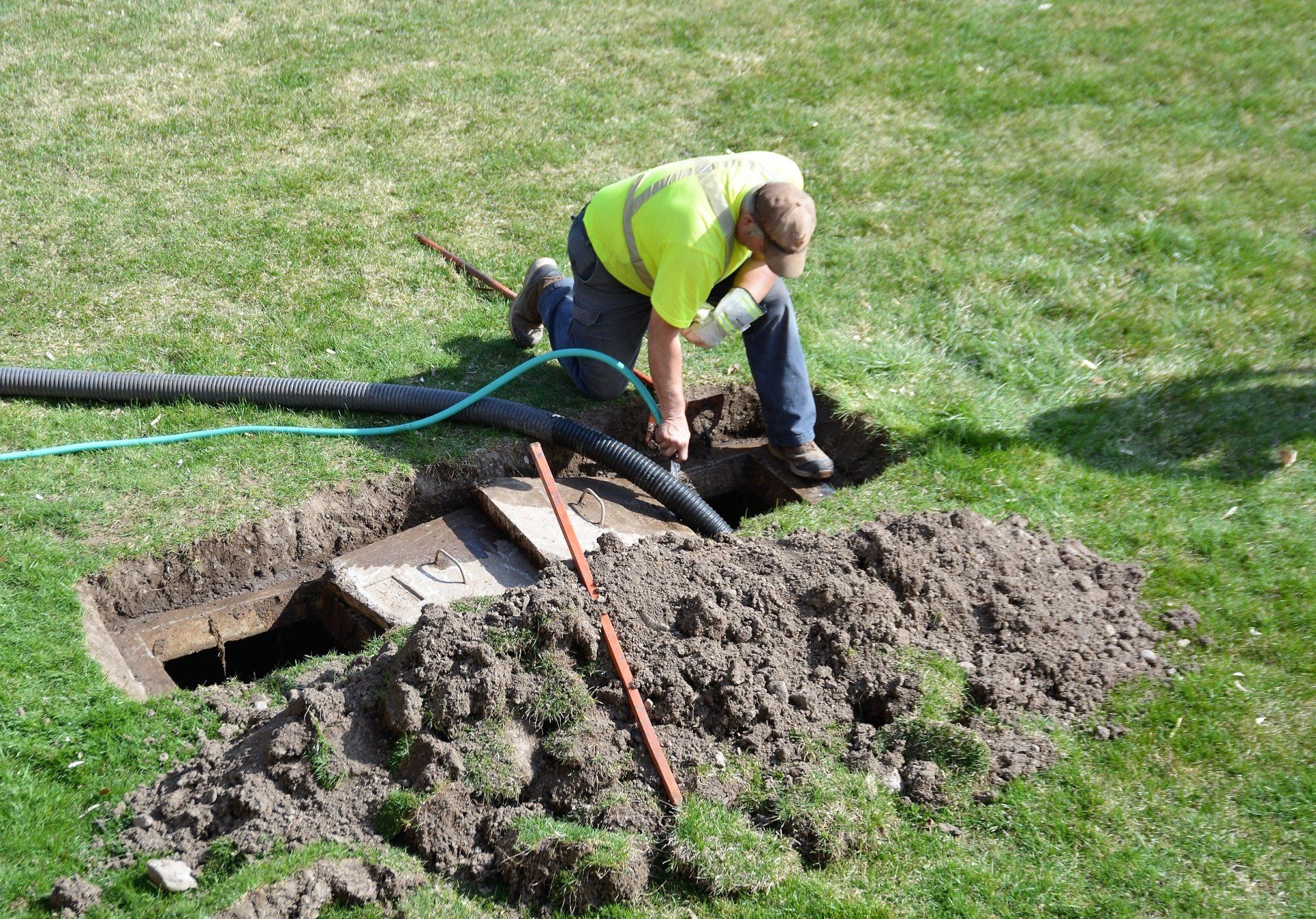7 Signs You Need a Drain Field replacement: Identifying Common Septic System Issues
Introduction
A drain field plays a vital role in the proper functioning of a septic system. It is responsible for the final treatment and disposal of wastewater from the septic tank. However, like any other component of a septic system, drain fields can experience problems over time. We will explore seven common signs that indicate the need for a drain field inspection or repair. By identifying these signs early on, homeowners can take proactive measures to prevent further damage and ensure the longevity of their septic system.

1- Slow Draining Fixtures:
One of the most noticeable signs of drain field issues is slow draining fixtures. If you notice that sinks, showers, and toilets are taking longer than usual to drain, it could indicate a problem with your drain field. The drain field's primary function is to absorb and disperse wastewater into the surrounding soil. When the drain field becomes clogged or overwhelmed, it hampers the drainage process, resulting in slow-draining fixtures throughout the house.
2- Foul Odors:
Unpleasant odors emanating from your yard or near the septic system are another indication of drain field problems. When a drain field fails, it can cause wastewater to accumulate or surface, leading to foul smells. The accumulation of waste material can produce hydrogen sulfide gas, which has a distinct rotten egg odor. If you notice persistent foul odors around your septic system or in your yard, it's crucial to have a professional inspect your drain field.
High search volume keyword: foul odors, drain field problems
3- Pooling Water:
Excessive water pooling in your yard, particularly around the drain field area, is a clear sign of drain field issues. A failing drain field is unable to effectively disperse wastewater into the soil. As a result, the water accumulates on the surface, creating soggy areas or even standing water. This pooling water can lead to unsightly and potentially hazardous conditions. It is essential to address this issue promptly to prevent further damage to your drain field and septic system.
4- Lush or Greener Grass:
While green grass is generally desired, an unusually lush or greener area above the drain field can indicate a problem. When a drain field fails, the excess nutrients in the wastewater can fertilize the soil, leading to rapid grass growth. If you notice a specific area of your yard with significantly greener or more vibrant grass compared to the rest, it may be an indication that your drain field is not functioning properly. Consulting a professional can help diagnose and address the issue promptly.
5- Backups or Clogs:
Frequent backups or clogs in your plumbing fixtures, such as toilets or drains, can be a sign of a failing drain field. When the drain field is unable to absorb and distribute wastewater properly, it can cause backups and clogs in the plumbing system. If you experience recurrent issues with multiple fixtures backing up or draining slowly, it is crucial to have your drain field inspected to identify the root cause of the problem.
6- Sewage Smells Inside the House:
If you detect sewage odors inside your home, especially near drains or toilets, it may indicate a problem with your drain field. A malfunctioning drain field can cause sewage to back up into the plumbing system, resulting in unpleasant odors inside the house. This can pose health risks and create an unsanitary living environment. If you notice persistent sewage smells, it's important to address the issue promptly by contacting a professional to inspect your drain field. Timely intervention can prevent further damage and ensure the proper functioning of your septic system.
7- High Nitrate Levels in Well Water:
If your drinking water comes from a well and you discover elevated nitrate levels during water testing, it could be an indication of drain field problems. A failing drain field can allow untreated wastewater to seep into the groundwater, contaminating your well water. High nitrate levels in well water are a health concern, particularly for infants and pregnant women. If your water tests consistently reveal high nitrate levels, it's crucial to have your drain field inspected to identify and address any issues that may be contributing to the contamination.
Conclusion:
A well-functioning drain field is essential for the proper operation of your septic system. By recognizing the signs of drain field issues, such as slow draining fixtures, foul odors, pooling water, lush or greener grass, backups or clogs, sewage smells inside the house, and high nitrate levels in well water, homeowners can take proactive steps to address these problems. Prompt inspection and repair by a professional First Call Septic Services INC company can prevent further damage to the drain field and septic system, ensuring the continued functionality of your wastewater treatment system and the protection of your health and the environment. Contact ort team at (305) 842-3216 for further information.










